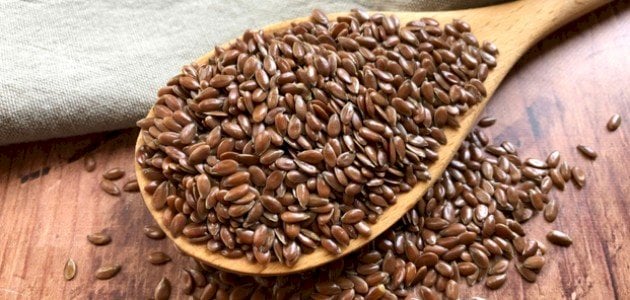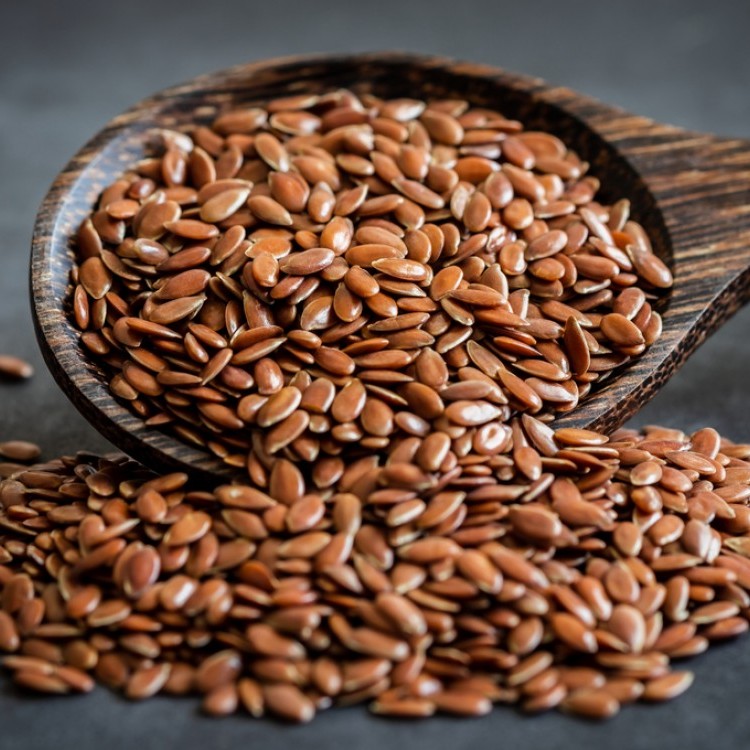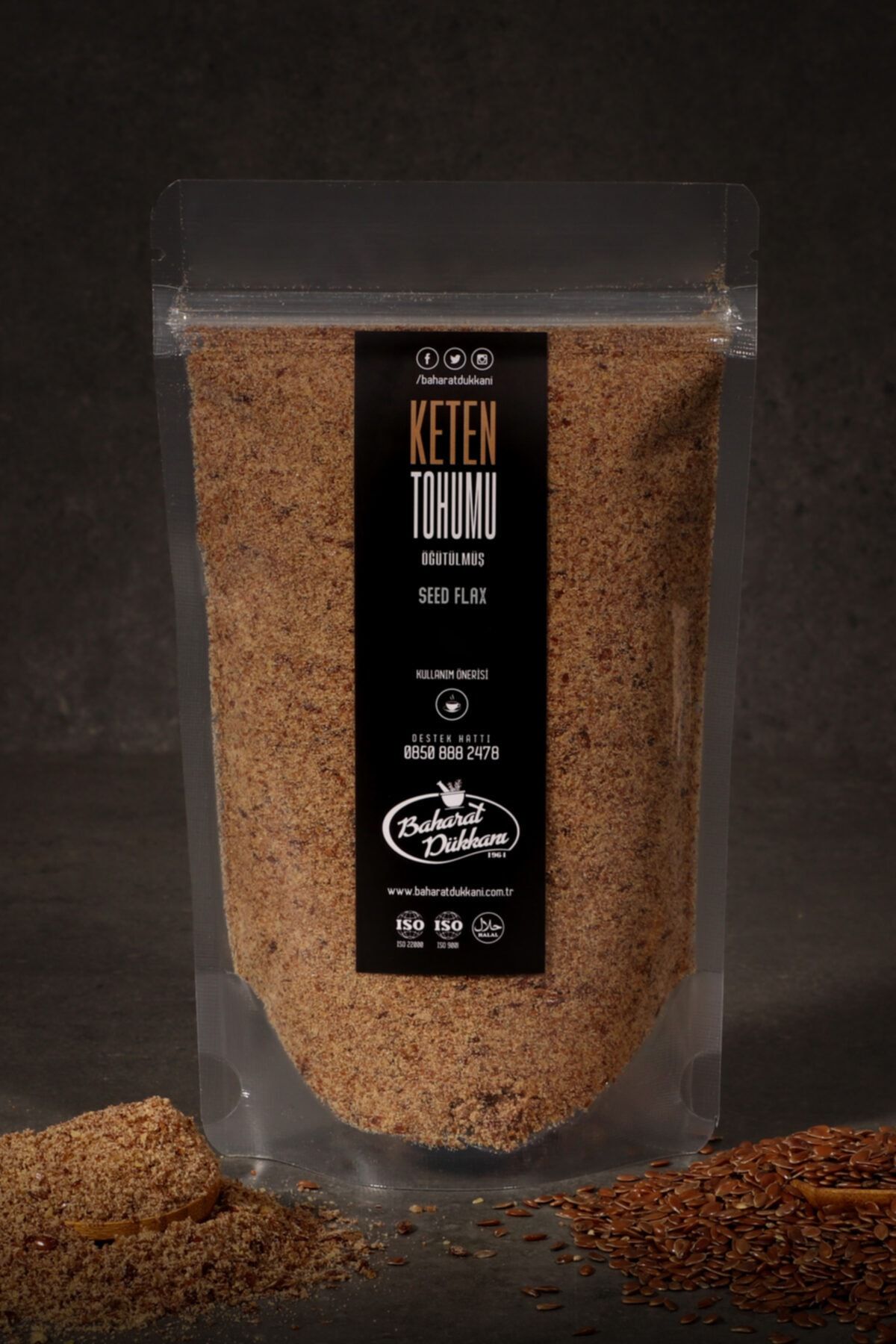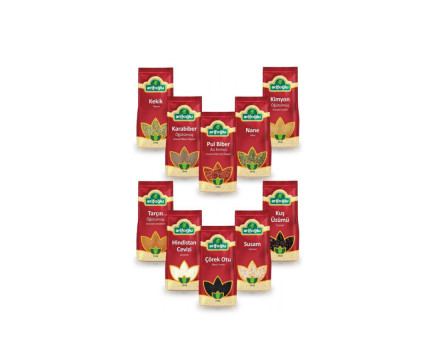-1060x400w.jpg)
Flax seeds for pregnant women, benefits and risks
Flax seeds are small brown seeds known for their high content of natural fiber, which acts as a laxative. Additionally, they are a good source of zinc, magnesium, potassium, vitamin E, and vitamin B6.
Moreover, they contain Omega 3, which helps in lowering harmful cholesterol levels.
In this article, we will address various inquiries related to the consumption of flax seeds during pregnancy. We'll attempt to understand what benefits these seeds offer to pregnant women and whether there are any potential risks when using them for both the mother and the baby.
Flax Seeds for Pregnant Women
Pregnancy is a sensitive stage, and it's important for pregnant women to be cautious about what they consume. It's essential for pregnant women to consult a doctor or pharmacist before using any medications or herbs, especially during the first three months of pregnancy.
Some studies suggest that small amounts, approximately a tablespoon containing about 1.4 grams of flax seeds, are safe.
However, consuming large amounts of flax seeds during pregnancy may lead to hormonal imbalance. Therefore, moderation in their use is advised, and pregnant women should also avoid using flaxseed oil during pregnancy.
Benefits of Flax Seeds for Pregnant Women
Flax seeds offer many benefits to pregnant women, including:
- Contributing to fetal growth due to the presence of linoleic acid and Omega 3, which support the growth of the fetus's brain, especially in the early stages of pregnancy.
- Treating constipation during pregnancy due to the natural fiber present in flax seeds, which acts as a natural laxative when consumed in moderate amounts with water
- Regulating blood sugar levels by consuming small amounts of flax seeds during pregnancy.
- Reducing the risk of heart disease due to the anti-coagulant properties of flax seeds, which work to lower harmful cholesterol levels and increase beneficial cholesterol levels.

Flax Seeds for Pregnant Women with Twins
Flax seeds may play a role in maintaining mental health and fetal growth, as well as reducing the risk of premature birth for twins. However, it is important to consume flax seeds within the recommended limit, which is 300 mg of Omega-3 per day for pregnant women.
Ways to Incorporate Flax Seeds into the Diet
- Sprinkle flax seeds on breakfast dishes.
- Mix flax seeds with cake batter and desserts.
- Combine flax seeds with salad or mayonnaise.
- Mix flax seeds with yogurt or juices.
What Are the Risks of Flax Seeds for Pregnant Women?
Potential adverse effects of flax seeds on pregnant women include:
- Diarrhea, gas, and nausea.
- Allergic reactions in pregnant women with nut allergies, leading to symptoms such as lip swelling, difficulty breathing, and chest tightness.
- High blood pressure, especially when consuming immature or raw flax seeds.
- Cyanide poisoning due to consuming large amounts of flax seeds, as they contain cyanide, which can be fatal to pregnant women.
Flax Seeds for Childbirth
Flaxseed oil may help soften the cervix and facilitate the onset of labor for pregnant women. However, it is necessary to consult a doctor before using flaxseed oil to facilitate childbirth in the later stages of pregnancy due to the potential risks to both the mother and the fetus.
Benefits of Flax Seeds for Ovarian Activation
Flax seeds help in treating Polycystic Ovary Syndrome (PCOS) by reducing androgen levels in the body due to their content of Omega-3 fatty acids.
A study involving a 31-year-old woman with PCOS showed a significant decrease in androgen and testosterone levels after consuming about 30 grams of flax seeds daily for four months.

Benefits of Flax Seeds for Infants
Flax seeds are safe for breastfeeding infants and are recommended for use after nine months of age. Some key benefits of flax seeds for infants include:
- Cancer prevention.
- Prevention of various respiratory diseases, including pneumonia, and reducing the risk of asthma.
- Enhancing mental and visual abilities in infants due to their content of Omega-3 fatty acids.
- Improving digestive system function due to their natural fiber content.
Risks of Flax Seeds for Breastfeeding Infants
Despite the many benefits of flax seeds for breastfeeding infants, they have potential side effects that should be taken into account, such as:
- Onset of allergy symptoms such as itching and redness.
- Increased risk of bleeding in infants.
- Digestive problems, including gas.
- Prolonged use of flax seeds may lead to diarrhea in infants due to their laxative properties.
In conclusion, as we have read, flax seeds have many benefits for the health of pregnant women and breastfeeding infants. However, it is important to consult a doctor before using flax seeds for infants and pregnant women and seek medical advice if any of the above-mentioned symptoms occur, especially allergic reactions.
Source: altibbi







Leave a Comment